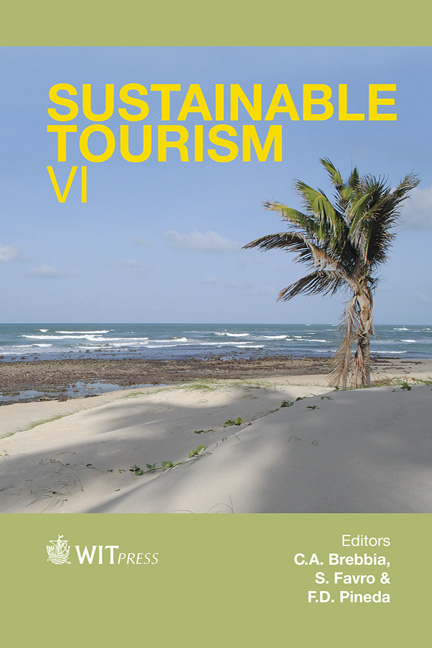VV-TOMM: Capacity Building In Remote Tourism Territories Through The First European Transnational Application Of The Tourism Optimization Management Model
Price
Free (open access)
Transaction
Volume
187
Pages
11
Published
2014
Size
283 kb
Paper DOI
10.2495/ST140081
Copyright
WIT Press
Author(s)
A. Jiricka, B. Salak, A. Arnberger, R. Eder & U. Pröbstl-Haider
Abstract
Management concepts for sustainable tourism development tackle the challenges of preventing the use of natural, socio-cultural and economic resources from turning into the abuse of such resources. Their major aim is keeping the balance between visitor numbers and the welfare of the local environment and population. In 1997, a new approach was elaborated – the Tourism Optimization Management Model, called TOMM for short. In contrast t o other management approaches, TOMM acts as a motivator to achieve results which will be appreciated by all tourism actors. Rather than focusing on limits, it strives towards a process of mobilisation and identity building. Within a three-year transnational research project – focused on remote areas under transition to a strategic development of tourism – TOMM was first applied in a transnational European context. This paper analyses the potential and flexibility of the TOMM framework under special preconditions: all study areas were either just beginning tourism activities or were re-establishing their tourism businesses. The transnational application in this paper examines the ability of the TOMM-process to introduce a ‘strategic’ sustainable tourism management concept under difficult conditions, such as low tourism budgets, missing tourism data, heterogeneous stakeholder structures or lack of commitment by stakeholders. Findings of this international comparison demonstrate the potential of the TOMM-framework to encourage a learning process about successful and sustainable destination development, and about the need to monitor multidimensional data in order to survey and adapt the tourism strategy if needed.
Keywords
tourism monitoring, destination management, stakeholderinvolvement.





